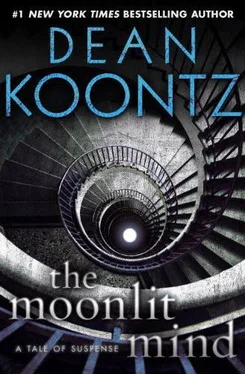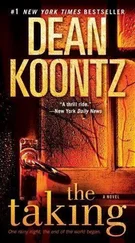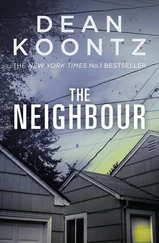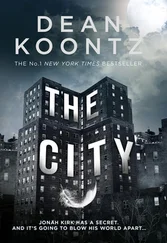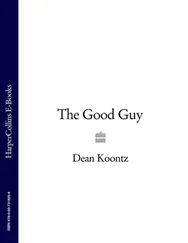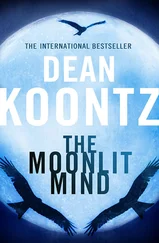Crispin has never before seen anyone naked except himself and his brother. The sight of these bare bodies embarrasses him, shames him that he should be staring at them as he does, but also sends a not unpleasant shiver up his spine.
Perhaps half the assembled are standing and chanting, and the others are either on their hands and knees or lying in strange postures, moving together in urgent rhythms, writhing. He needs a moment to understand that they are doing the man-woman thing, of which he has only the vaguest understanding, the man-woman thing, but the couples are not always a man and a woman, and they are not always only couples.
None of them appear to notice him. Not yet. He is a small boy still outside the main crescent of candlelight, largely shadowed but for the knife blade that glimmers as if it’s gold.
He sees Nanny Sayo doing something disgusting. She disgusts but also tantalizes him, and he takes two steps toward her before he realizes what he is doing and halts. A fresh terror, different from any he has known before, shears through him, because he realizes that if she sees him and turns those eyes on him, those pretty black eyes, the least terrible thing that might happen to him is that they will kill him. The sinuous candlelight, the rich incense that is one moment an exquisite perfume and the next moment a suffocating smog, the chanting, the supple movements of the writhing bodies, and now, from somewhere, reedy music: All of it does nothing so innocent as sweep over Crispin, a tide of experience, but instead envelops him, seems to take him as his nanny has sometimes taken him in her arms, surrounds him and lifts him, welcomes him. If Nanny Sayo catches sight of him now, if she meets his eyes, he knows in his heart that he might wake up years and years from now, not sure how he has gotten wherever he might be at that time, not sure who he is, sure of only one thing, that he is owned by someone, that he is a slave to her.
This sensory stimulation has so overwhelmed him that only now does he raise his eyes from the crowd to what lies elevated beyond them. On a long white marble table lies Harley, dressed in a white gown like a choirboy, a wreath upon his head. He is chained to steel rings in the pale stone. His jaws stretch painfully to accommodate a green apple in his mouth, and the apple is held in place by a strap that goes around his head. Crispin looks higher yet and sees Jardena and Mr. Mordred, both in black robes. Masks are tilted off their faces, onto their heads, but now they pull them back in place, masks so realistic that suddenly Mr. Mordred seems to have the head of a leering goat, Jardena the head of a snarling pig.
Another time, these masks might strike him as funny, Halloween dress-up, silly play-acting, but this is different because the faces under the masks are their masks, and the elaborate masks of goat and pig are their true faces. If people can be so different from what they appear to be, maybe nothing in the world is what — or only what — it seems to be.
Behind and above Jardena and Mr. Mordred, on the back wall, hangs an object of which Crispin cannot immediately make sense. After a moment, he realizes that it is a crucifix hung upside down.
Over the chanting and the music, Crispin hears a more intimate noise, a buzzing. A few feet above his head, a serpentine stream of fat horseflies winds out across the celebrants. These must be their marks, birthmarks, tattoos, whatever, once just silhouettes on their skin but now become real for the duration of the ceremony, swarming. He suspects that if one of the flies chooses to settle upon him, he will be lost.
As the chanting of the standing members of the congregation reaches a higher pitch, Crispin looks back toward Harley in chains. The raised dagger in Jardena’s hand has a serpentine blade across which candlelight flows like a liquid.
Crispin is just a boy, a small boy with weaknesses of character, which have been encouraged since he came to live in Theron Hall. He is a boy whose formation is incomplete, whose heart is still a work in progress. He is a boy without the substance to be a warrior, and he is too late. The dagger plunges, and Crispin flees, runs from the horseflies and from the magnetic eyes of Nanny Sayo before she can turn them on him, runs from all responsibility for his brother, but also — as he will realize only years later — he runs from what calls to him seductively, from what he might have been if his weaknesses had run deeper or been worse.
Breathing hard and raggedly, he finds himself in the foyer, without the knife but with the book, A Year of Saints , on the cover of which is a different portrait of Saint Michael, not in the company of Gabriel and Raphael this time, as in the interior illustration, but alone and fierce.
Crispin pulls open the door and is confronted by the policeman who can be everywhere at once. “Useless little coward,” the hulking cop declares, and he swings the billy club, which shatters when it strikes the image of Saint Michael on the cover of the book.
The boy dodges as the policeman reaches for him, and he races away from the house. He sprints across the sidewalk, springs off the curb and into traffic.
On the farther side of Shadow Street stands the Pendleton, bigger even than Theron Hall, once a mansion for a single family, now an apartment building. He knows no one in the Pendleton. The place does not look welcoming, looks in fact like another kind of terror waiting to entrap him.
Brakes shriek and car horns trumpet like prehistoric beasts, vehicles swerve around him with only inches to spare, but Crispin doesn’t care what happens to him anymore. He runs the center of the avenue, down Shadow Hill, taillights to one side and headlights to the other, and the sea of lights that is the city seems to rise like an incoming tide to meet him.
One street becomes another, another, another. Alleyways entice, and in one of them a man who smells of stale sweat and whiskey grabs him—“Whoa there, Huck Finn, you got something for me?”—but Crispin wrenches free.
He runs, runs until his chest aches, until his throat is raw from breathing through his mouth. When at last he halts, he is standing on the sidewalk at an entrance to St. Mary Salome Cemetery.
Although he does not remember dropping it, the book with Saint Michael on the cover is gone. He has no recollection of digging the rumpled bills from his pocket, either, but clutched in his right hand are the two fives and the single that he took from the petty-cash envelope on the butler’s desk.
So much of such devastating import has happened in the past hour that Crispin shouldn’t be able to unravel a complex thought from his mental and emotional mare’s nest. But as he regards the money in his hand, he realizes that the moment he took it, he knew that he would not die to save his brother, that in the end he would cut and run. This was his getaway money, a pathetic little stash to tide him over during his first day or two on the streets. He could have taken the entire sixty-one dollars, but he would have known right then that he had no intention of heroic action. He prided himself on taking only eleven, on not being a thief, to distract himself from the truth of his cowardice. He went into the basement not to find and save his little brother, not really, but instead because the secret of the room behind the steel door was alluring, as alluring as the luxury of Theron Hall, as tempting as a life of leisure, as seductive as Nanny Sayo.
He begins to weep and then to sob uncontrollably for Mirabell and for Harley, but also for himself, for what is lost as much as for who is lost. He tries to throw down the money, but his hand has intentions of its own, cramming the bills into his pocket once more. He cannot run from the money because it is part of him now, and he can’t run from himself, no one can, but he tries.
Читать дальше
Конец ознакомительного отрывка
Купить книгу
